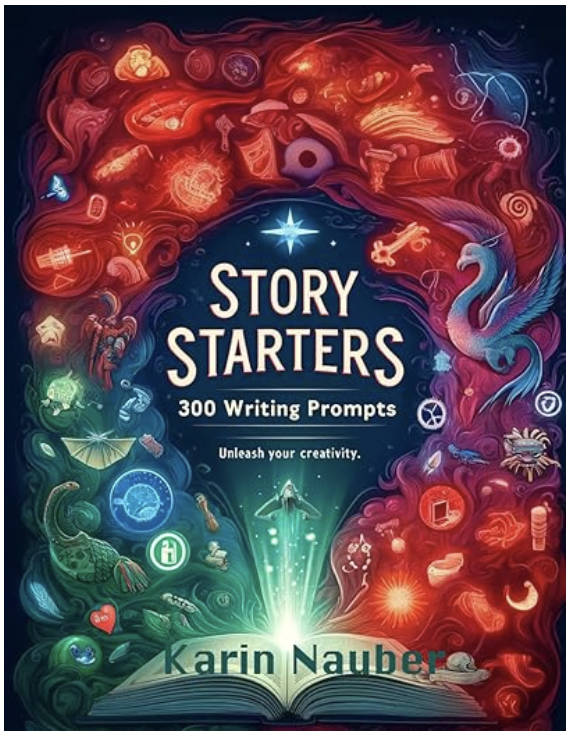
Writing rituals and habits are like the secret sauce behind every successful writer. They don’t just help in getting words down on paper but also fuel creativity and keep the process smooth and enjoyable.
Rituals and habits might seem similar, but they have their differences. Rituals are those special, repeatable actions that set the stage for writing. Think of them like a warm-up routine before a workout. On the other hand, habits are the consistent behaviors that become almost automatic over time, helping you maintain a steady writing cadence.
I like to also think of them in terms of templates. There are templates that work and ones that don’t work. I have a few favorites that work to help set the stage, build a scene and help me create believable characters. the best part about the templates is that I can use them over and over and still come up with different places, scenarios and characters. You can, too.
I will soon have downloadable PDFs available on this site as well as through my newsletter.
Getting back to rituals, there’s some serious psychology behind these practices. Writing rituals can reduce anxiety, making the whole process less daunting. They signal your brain it’s time to write, helping to shift into ‘writing mode’ more easily. This can significantly impact your productivity and make writing feel less like a chore and more like a rewarding activity.
Great writers often swear by their rituals and habits. For example, Hemingway used to sharpen his pencils before he started writing for the day. Maya Angelou rented a hotel room where she wrote daily, separating her work from the comforts and distractions of home. These examples show how different routines can create the perfect mental space for writing.
Incorporating rituals and habits isn’t just about emulating famous authors. It’s about finding what works best for you. I mean, I can’t seriously afford to rent a hotel room to write in, but there are things I do like to do to get myself set up for writing.
Since I work a “day” job, I usually write in the evening. That might mean, getting comfortable with a cup of tea or coffee (depending on my caffeine needs at the time)! It might mean putting on some music. It might mean taking a few minutes to play a video game and relaxing into my routine.
I can tell you that one thing it does not mean for me is getting out of my “work” clothes! If I get into my pajamas or something for bedtime, all I can focus on is what I am wearing. Even during the shutdowns during COVID, I had to get dressed for work each day even if no one was going to be seeing me!
So, for you, whether it’s brewing a cup of coffee, meditating for five minutes, or listening to a specific type of music, a personalized ritual can turn writing from a task into an enjoyable and productive part of your day.
Building Effective Writing Rituals and Habits
 Creating effective writing rituals and habits starts with knowing what works best for you. Everyone has their unique preferences and rhythms, so it’s crucial to figure out your sweet spot. Maybe you write best in the early morning, or perhaps late-night sessions are your jam. Start by experimenting with different times and setups to see what feels most natural and productive for you.
Creating effective writing rituals and habits starts with knowing what works best for you. Everyone has their unique preferences and rhythms, so it’s crucial to figure out your sweet spot. Maybe you write best in the early morning, or perhaps late-night sessions are your jam. Start by experimenting with different times and setups to see what feels most natural and productive for you.
A consistent writing schedule can make a world of difference. Setting aside specific time slots each day dedicated solely to writing helps build momentum and makes writing part of your daily routine. It doesn’t have to be long sessions; even 15-30 minutes a day can lead to significant progress over time. The key is consistency, not duration.
Creating a productive writing environment is another biggie. This should be a space where you feel comfortable and free of distractions. Whether it’s a quiet corner in your home, a bustling coffee shop, or a park bench, the right environment can set the tone for a good writing session. Consider factors like lighting, ergonomics, and noise levels to fine-tune your writing spot.
Pre-writing activities can be game-changers for jumpstarting creativity. Things like brainstorming, free-writing, or sketching mind maps can help get the creative juices flowing. Some writers find it helpful to read a few pages of an inspiring book or jot down random ideas before diving into their main project.
Balancing flexibility with consistency is essential. While a routine is great, life happens, and sometimes sticking rigidly to a schedule isn’t feasible. It’s okay to adapt your rituals as needed. The goal is to build a sustainable practice that adjusts to your life while keeping you on track with your writing objectives.
Overcoming Common Challenges in Maintaining Writing Rituals
Writer’s block is one of the most common challenges faced by writers. It’s that frustrating period when the words just won’t come. One way to combat this is by having mini-rituals specifically designed to break through that block. Changing your environment, doing something active like a short walk, or even switching to a different type of writing can help reset your mind.

You could also check out my book called Story Starters which includes 300 writing prompts to get you going and fight writer’s block! It is available at the link above on Amazon in e-book or paperback. The paperback does give you the ability to write your story ideas in it.
Keeping motivation high over the long term can be tricky. Sometimes the initial excitement of a new project fades, and it’s hard to keep going. Setting small, achievable goals can give you a sense of accomplishment and keep you motivated. Celebrating these little victories, whether it’s finishing a chapter or meeting a word count, can make a big difference.
Distractions and procrastination are the arch-nemeses of a writer. It helps to set up boundaries and make a plan for your writing time. Turn off notifications, set a timer, and create a ‘do not disturb’ signal for those around you. Breaking writing sessions into focused intervals with short breaks in between can also boost productivity.
Life circumstances change, and sometimes you need to adapt your rituals accordingly. Whether it’s a new job, moving to a new place, or family commitments, flexibility is key. Adjust your writing schedule to fit your current situation instead of trying to force an old routine that no longer works. The ability to pivot and adapt keeps your writing practice resilient.
Accountability and support systems can provide a huge boost in maintaining your writing rituals. Joining a writing group or finding a writing buddy can give you that extra push to stay on track. Sharing your goals and progress with others creates a sense of community and accountability, making the solitary act of writing feel more connected.
